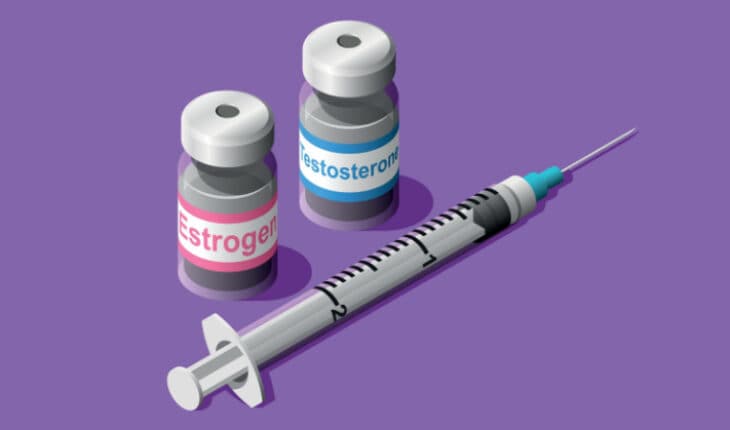Transgender adults seeking testosterone therapy have better mental health outcomes with early treatment, trial shows
Transgender adults who have access to timely gender-affirming testosterone therapy had a significantly reduced risk of gender dysphoria, depression and suicidality, a University of Melbourne-led clinical trial has found.
The randomised, open-label clinical trial was led by researchers from the Trans Health Research Group in the Department of Medicine at the University of Melbourne, Department of Endocrinology at Austin Health and Equinox Gender Diverse Clinic, Thorne Harbour Health in Abbotsford.
The trial included 62 trans adults, aged between 18-70, who were seeking initiation of testosterone.
Participants were clinically assessed under the Informed Consent model of care as per national guidelines.
This gender affirming model of care is a respectful, shared-decision making approach where a doctor supports a person in their gender in a way tailored to individual needs.
This includes using affirming language, referring for social and mental health support, and providing thorough education on the benefits and risks of hormone therapy to enable a patient’s ability to make informed decisions about all aspects of their health.
During the trial, half of the cohort began testosterone treatment following extensive clinical assessment with an experienced clinician.
The other half had standard care which involved a typical waiting period of three months prior to initiation of testosterone.
This allowed comparison of the effects of testosterone therapy over three months in trans people seeking testosterone therapy for gender affirmation.
The research, published in the Journal of American Medical Association Network Open, suggests prompt access to gender-affirming hormone therapy has impacts on the mental health outcomes of the at-risk trans community.
PhD candidate Dr Brendan Nolan, the lead author, said the pathway to accessing gender affirming therapy is difficult for trans individuals in Australia, and can be a lengthy process.
“Barriers to accessing healthcare have been associated with suicide attempts in the trans population,” he said.
“In this trial, we found that there was a significant decrease in gender dysphoria in individuals who began testosterone treatment immediately.
“We also report a clinically significant decrease in depression, and an over 50 per cent decrease in participants with suicidality (the risk of suicide and suicidal thoughts) with immediate testosterone therapy.”
Associate Professor Ada Cheung, the senior author on the research, said it has impacts for clinical care.
“It is the first open-label randomised trial showing that gender affirming hormone therapy reduces depression, suicidal ideation and gender dysphoria in trans individuals seeking gender affirming treatment,” she said.
“It is well documented that there are disproportionate rates of negative mental health outcomes amongst trans individuals compared to the general population in Australia.
“The lack of doctors willing to provide care and long wait lists at existing clinics compounds the problem.
“Providing gender affirming hormone therapy has immense benefits on reducing suicide risk and improving the mental health of trans people. This is critical given the alarming rates seen in the trans community in Australia.
“Improving awareness about the benefits of hormonal therapy in trans people and better supporting GPs to provide gender affirming care will be lifesaving for many.”
If you or anyone you know needs help or support, Lifeline is available on 18 11 14. QLife is a LGBTQIA SB+ specific service available on 1800 184 527, or webchat. DISCHARGED is a peer support group for trans and gender diverse people.
- New lipid-based pathway discovered as key to memory formation - 25th June 2025
- Crucial link could explain how Alzheimer’s takes hold - 25th June 2025
- Understanding Your Mind Can Improve Daily Life - 25th June 2025







